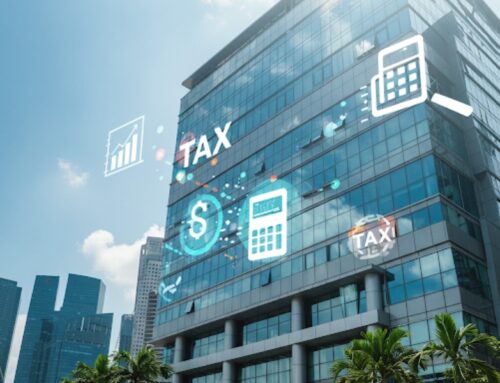Section 2 of the Income Tax Act defines “person” as a company and body of persons. It further states that body of persons does not include partnerships. For simplicity’s sake, you can treat a person in the act as a natural person as it would help make understanding easier but remember that a person under the Income Tax Act is broader than just a natural person.
There are only two options. Either a person is a resident of Singapore or a non-resident of Singapore. This is for the purpose of calculating a person’s individual income tax rate.
There are 2 tests to consider.
- Qualitative Test
- Quantitative Test
The Qualitative Test precedes the Quantitative Test. Typically, individuals would want to be considered a Singapore tax resident as Singapore’s income tax rates for residents are typically (not always) lower than other countries.
Test 1: The Qualitative Test
The qualitative test refers to the quality of stay. An individual will be considered a Singapore resident if he is ordinarily residing in Singapore and his absences from Singapore are temporary and reasonable.
An example of this would be a Singaporean citizen who has been living and working in Singapore for the whole of his life. He is working for a Singapore-based company. He is seconded to another country for a temporary period (for example, 2 years). In this case, his absence due to the secondment is temporary and it is for him to do his work for his Singapore-based company from which he is drawing his salary from.
Typically, if the individual passes the qualitative test and is determined to be a Singapore resident, then he would most likely be treated as a Singapore tax resident.
Test 2: The Quantitative Test
The quantitative test has two tests.
i) Duration of stay
ii) Duration of employment
i) Duration of stay
The person needs to stay in Singapore for 183 days or more. This stay does not need to be consecutive.
The stay does not need to be the whole day. Part of a day is counted as one day (section 2(2) of the Income Tax Act).
ii) Duration of employment
The person needs to exercise employment in Singapore for 183 days or more in the year preceding the year of assessment.
For a person to exercise employment in Singapore, he does not have to be living in Singapore.
This duration of employment test does not apply to company directors.
Exception:
A person can still rely on an exception if he does not meet the qualitative and quantitative tests. These exceptions are administrative concessions.
There are 2 administrative concessions:
1) The 3-year administrative concession
2) The 2-year administrative concession
1) The 3-year administrative concession
A foreign employee can be treated as a tax resident if he has been physically present or working in Singapore for 3 consecutive years even though the actual number of days he is in Singapore is less than 183 days in the 1st and 3rd years.
Example:
Year 1: 100 days
Year 2: 365 days
Year 3: 60 days
Without the administrative concessions, this person would be deemed a non-resident in years 1 and 3. However, with the concession, he is a resident for all 3 years.
1) The 2-year administrative concession
A foreign employee working in Singapore for a continuous period of 183 days straddling over 2 years will be regarded as a tax resident. This applies to persons who enter Singapore from 1 Jan 2007.
This only applies to employees of a resident employer.
Example:
Year 1: 95 days
Year 2: 95 days
There is no break in employment during the 95 days.
Therefore, this person is deemed a resident under the 2-year administrative concession.
If you need any assistance with tax matters, you may contact the Raffles Corporate Services tax advisory team at [email protected].
Yours sincerely,
The editorial team at Raffles Corporate Services







Leave A Comment